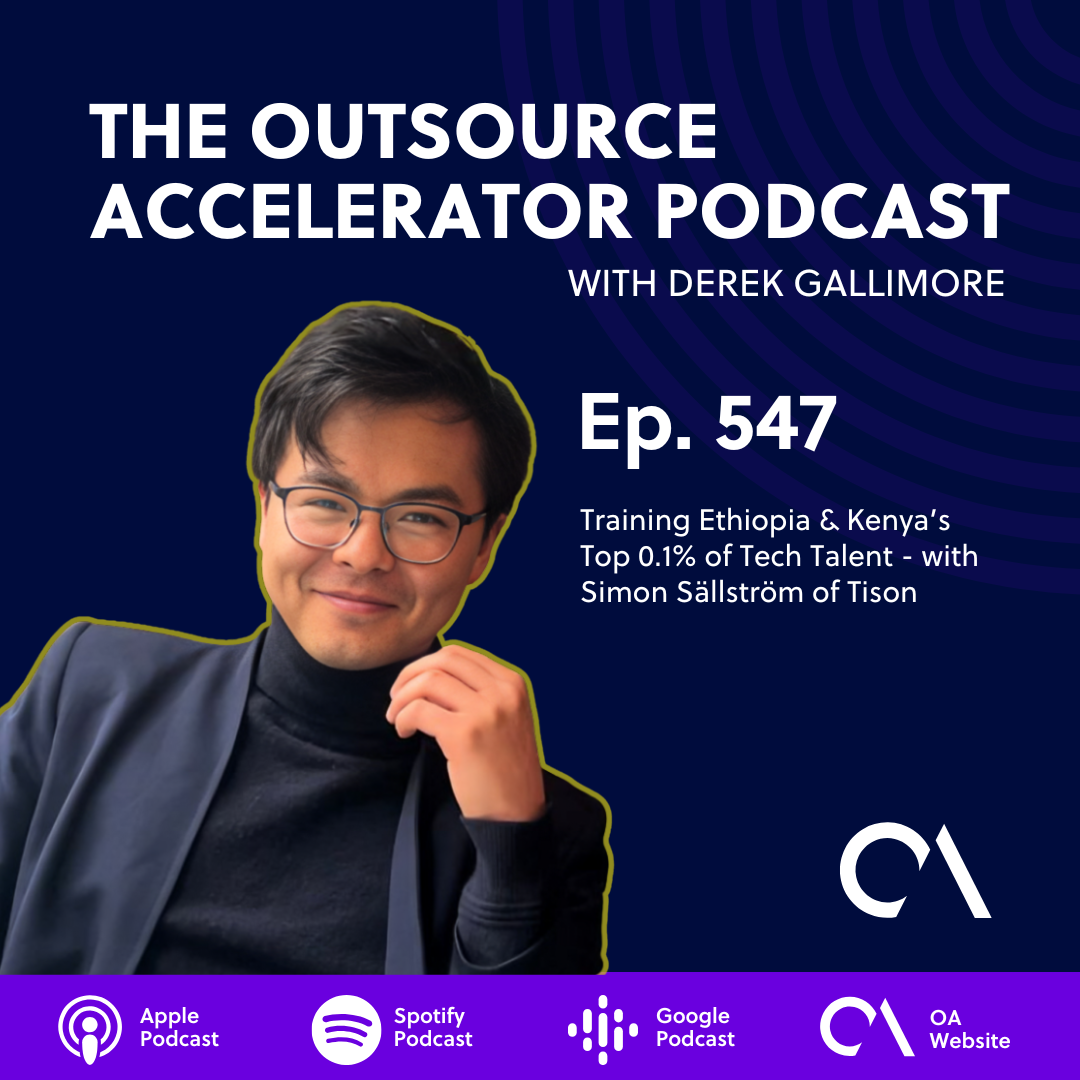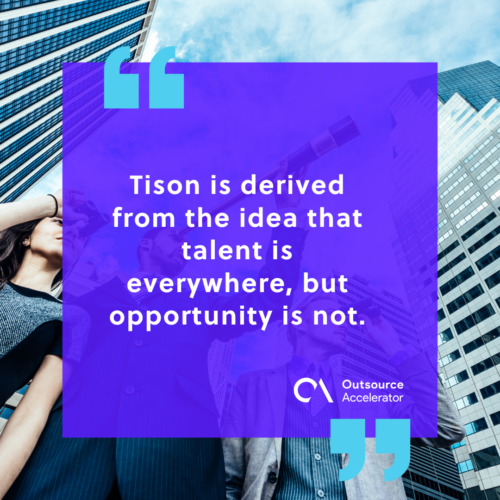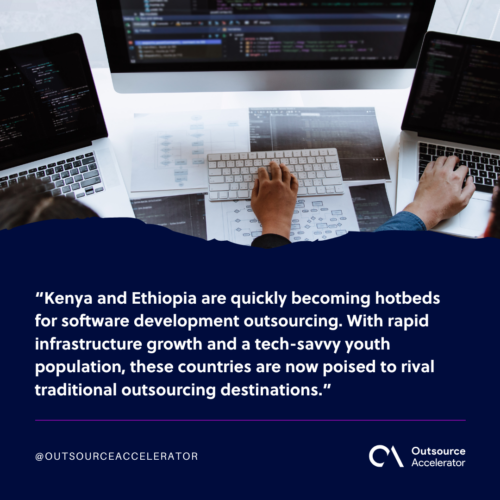Training Ethiopia & Kenya’s Top 0.1% of Tech Talent – with Simon Sällström of Tison

In this episode of the Outsource Accelerator Podcast, host Derek Gallimore speaks with Simon Sällström, the founder and CEO of Tison. Tison is an innovative social impact startup that is transforming the tech talent landscape in Kenya and Ethiopia.
Originally an initiative under the nonprofit DirectEd Development, Tison has evolved into a venture that not only identifies exceptional youth talent but also trains and integrates them into global tech teams.
Tackling the opportunity gap in Africa
“Tison is derived from the idea that talent is everywhere, but opportunity is not,” Simon explains.
He shares the story of how he and his team discovered a glaring gap in the African education and employment ecosystem.
“There were many students who, despite stellar grades, just couldn’t afford a laptop, couldn’t afford university,” he says. Many came from families living on less than $300 per month but showed extraordinary raw intelligence and learning potential.
This observation led to the creation of a tech academy that targets the top 0.1% of youth talent. These young people, often straight out of high school or university, undergo intensive bootcamps focused on development, AI, and UI/UX design.
“We [realized] that to reach their full potential, they need first some internships and exposure working in professional environments,” says Simon.

Tison’s unique model
Tison’s approach isn’t just about education—it’s about access to real-world experience.
After completing the bootcamp, students are placed in managed internship teams working on actual development projects for startups and SMEs in the US, UK, and Europe. This hands-on experience prepares them for full-time global roles.
Simon emphasizes the importance of letting the students prove themselves: “We set up a course and essentially look at all of their performance during the first week. If they do well, we invite them to the second phase.”
This bootcamp-first approach ensures a merit-based, scalable selection of candidates.
What sets Tison apart is its outcome-based tuition model. Students pay nothing upfront. Instead, once they land a high-paying job, they begin paying it forward.
“If you get a high-paying job, you pay more. If you stay locally, you pay less,” Simon explains.
Kenya and Ethiopia: The next outsourcing hubs
Kenya and Ethiopia are quickly becoming hotbeds for software development outsourcing. With rapid infrastructure growth and a tech-savvy youth population, these countries are now poised to rival traditional outsourcing destinations.
“Kenya now has, in Nairobi, better 4G or 5G than what I have in London,” Simon notes.
Meanwhile, Ethiopia has begun liberalizing its economy and investing in digital infrastructure, making it a promising new player in the tech outsourcing space.
Despite limited local job opportunities, Simon believes global remote work can be the solution.

Why businesses should work with African tech talent
Tison makes it easier for companies to tap into this rising talent pool. Their managed internship teams are overseen by experienced engineers, ensuring quality output.
“We are essentially charging for development services, but it’s really about giving these young people a first foot in the door,” Simon says.
The value proposition is clear: highly motivated junior developers working under experienced supervision, delivering real results—often at a fraction of the cost of traditional hires.
“Bewton, one of our students, led three different client projects from end to end in just two years,” Simon shares.
Scaling impact through global partnerships
More than simply developing coding skills, Tison is dedicated to building a global web of opportunities for young people across Africa.
As more startups and SMEs look beyond traditional outsourcing hubs, Tison offers a bridge to a largely untapped, high-potential workforce.
Simon invites companies to experience it for themselves.
“There are sometimes trade-offs, but there are also really big opportunities to get that sort of talent arbitrage, by going somewhere other people haven’t gone.
That’s how you get an edge on the market.”
You can learn more by visiting Tison’s website. You can also get in touch directly with Simon through his LinkedIn profile, where he shares his interviews with top investors and unicorn founders.
Additionally, he chronicles his journeys in Ethiopia and Kenya on the Impact Founder Journey, which is on Instagram and TikTok.
If you want to ask us anything, reach out to ask@outsourceaccelerator.com.







 Independent
Independent




